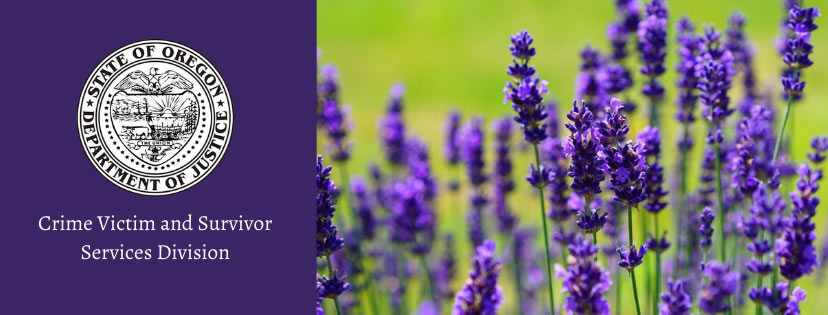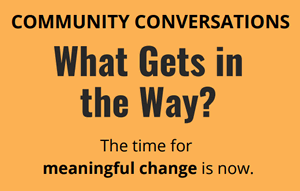Oregon Department of Justice Crime Victim and Survivor Services Division (CVSSD) connects many different programs with a single goal: to serve victims effectively and compassionately. We fund statewide victim service programs, help victims cover crime-related costs, and through our advisory committees and partnerships, we help shape best practices statewide and bring a diverse collection of voices to the issue of victims’ rights. Learn more about the CVSSD.

Crime Victims’ Compensation
 Oregon Crime Victims’ Compensation (CVC) Program was created to assist victims of violent crime with expenses associated with the crime. This includes domestic violence, sexual assault, child abuse, robbery, assault, homicide, or other compensable crime resulting in a physical or psychological injury. The mission of the CVC program is to ease the financial impact of these crimes on victims, survivors, and their families. Learn more about CVC.
Oregon Crime Victims’ Compensation (CVC) Program was created to assist victims of violent crime with expenses associated with the crime. This includes domestic violence, sexual assault, child abuse, robbery, assault, homicide, or other compensable crime resulting in a physical or psychological injury. The mission of the CVC program is to ease the financial impact of these crimes on victims, survivors, and their families. Learn more about CVC.
What types of benefits are available to eligible applicants?
• Counseling benefits
• Survivor Counseling benefits
• Medical benefits
• Funeral benefits
• Rehabilitation benefits
• Transportation (60 miles roundtrip to and from crime related medical or counseling appointments only)
• Loss of Earnings benefits
• Loss of Support benefits for survivors of homicide victims
***** Crime Victims’ Compensation (CVC) is the payer of last resort. Any medical or mental health benefits available to the applicant must be utilized prior to CVC. If approved CVC would pay for co-pays and deductibles. If no insurance benefit is available CVC would pay as primary.
If you have questions regarding Crime Victims’ Compensation Program, please call 503-378-5348 or
1-800-503-7983 or email cvssd@doj.oregon.gov.
CVC Mass Violence Emergency Application
Who is eligible for compensation benefits?
• This application is for any person who has suffered physical or psychological trauma.
• A family member of a deceased victim.
• Applicants who believe that they are eligible for, and would like to receive compensation for unanticipated medical and counseling expenses that occurred as a direct result of the crime should apply.
A Mass Violence Application can be submitted through the CVC Portal.
Community Conversations
In July and August of 2020, DOJ’s Crime Victim and Survivor Services Division (CVSSD) and Civil Rights Unit held twelve community conversations with people from demographic groups who have historically been discriminated against, experienced exclusion, and are currently impacted by ongoing inequity. The sessions were a continuation of in-person discussions begun in the Fall of 2019 by DOJ’s Crime Victim and Survivor Services Division. They continued these conversations and hosted twenty-one additional community conversations in June and July of 2021. This summary report of the 2020 Community Conversations discusses the information, concepts, and issues gathered during these sessions.
Need Immediate Help?Shelters, Advocacy Programs and Legal Assistance » Tribal Nations Victim Service Programs (PDF)» 988 Crisis Line » National Suicide Prevention Hotline » State and Federal Rental Assistance » County Victim-Assistance Programs 211 » Hate/Bias Crime and Incident Reports Consumer and Business Fraud Oregon State Bar Lawyer Referral and Modest Means Programs » Legal Aid » Disability Rights Oregon – Legal Assistance » |

